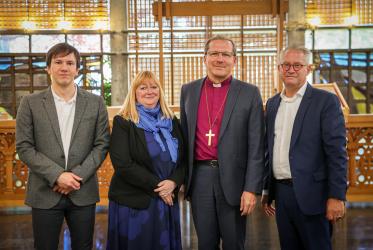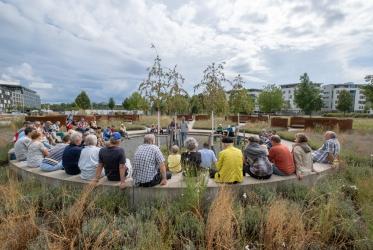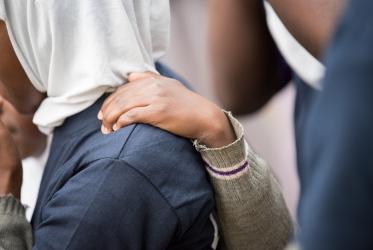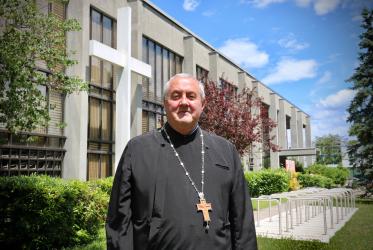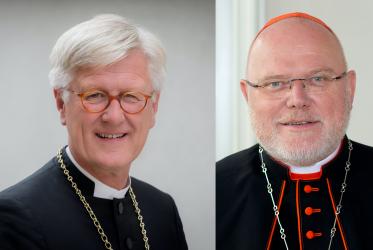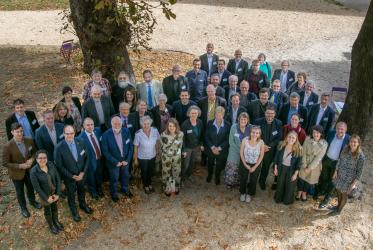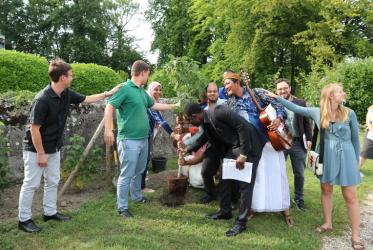Displaying 1 - 20 of 76
WCC hosts visitors from Finland, Germany, and Sweden
29 September 2023
Workshop explores how interreligious dialogue brings trust and respect
15 September 2022
WCC honoured with Geneva Engage Award
01 February 2022
Dr Abuom reflects on women of faith as healers of creation
05 October 2021
WCC honored with Bridge Builder Award 2021
02 July 2021
Driven by God’s grace and a sense of duty
05 November 2020
Archbishop Anastasios receives Klaus Hemmerle 2020 Prize
19 February 2020
Bossey students explore the meaning of “belonging”
22 July 2019

